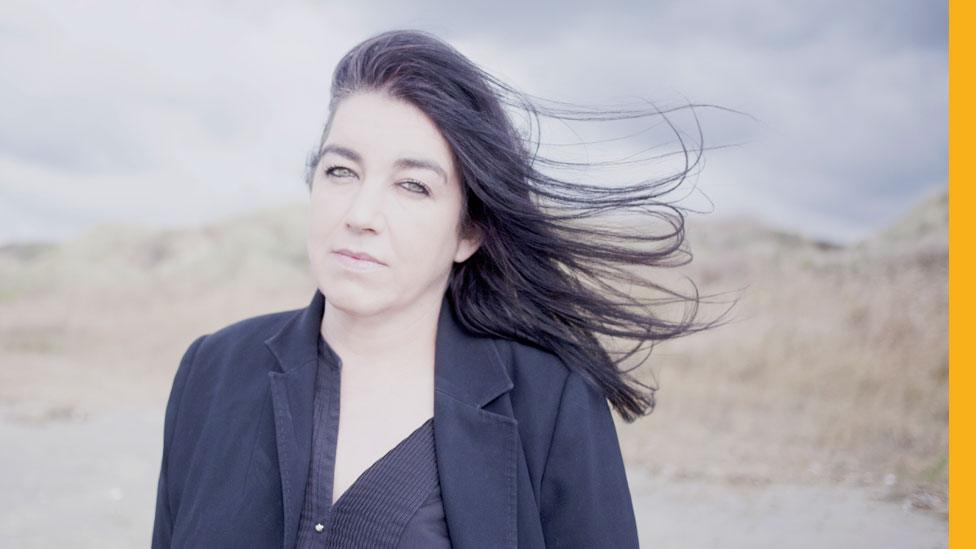French woman guilty of smuggling migrant partner but spared jail
- Published
Béatrice Huret: 'I did it out of love'
A woman put on trial in France for helping her romantic partner cross the border from the "Jungle" migrant camp in Calais to the UK has escaped a jail sentence.
Béatrice Huret, a former supporter of the far-right National Front, was found guilty of aiding an Iranian man named Mokhtar to cross the English channel.
However, the court did not hand down any punishment for Mrs Huret.
Three others on trial for related offences were also convicted.
Laurent Caffier, nicknamed "Zorro of the Jungle", also escaped punishment for his role in helping several Iranian men cross into the UK.
But the court handed three years in prison to one of the accused, and a six-month suspended sentence to another.
Prosecutors had argued that Mrs Huret and others were part of a criminal smuggling organisation, and that they had endangered the lives of the men by sending them across a major sea shipping lane on a small boat.
But the aggravated charges - which could have doubled the maximum possible sentence - were dismissed by the court.
Just before the trial began, Mrs Huret told reporters she accepted responsibility for what she had done.

Béatrice Huret spoke to her Iranian partner by phone just before the trial began
"What I did I did out of love, and what sets me apart is that I took no money. I am not someone dirty and that's all I want to make clear today," she said.
"The only thing that would bother me is that I would no longer see Mokhtar in prison, that's all."
After the verdict, Mrs Huret told the AFP news agency she was "relieved" by the ruling.
Calais, my love
Mrs Huret wrote a book about her experience, titled Calais Mon Amour (Calais My Love), and filmmakers are now reportedly bidding for the rights to the story.
In the book, she details how her late husband, who died of cancer in 2010, had supported Marine Le Pen's National Front, but could not do so officially because of his job as a border police officer. She became a supporter, however, and said she had been worried about an influx of foreigners to France.
But that changed when she offered a lift to a young Sudanese migrant trying to get to the Jungle camp at Calais, and saw the conditions there for herself.
She began volunteering at the camp shortly thereafter, where she met Mokhtar, a teacher who had converted to Christianity and was fleeing persecution in Iran.
When the pair met, he and some other migrants had sewn their lips shut in protest at the camp's conditions - an image which was widely published by media around the world.
"I sat down and then he came over and very gently he asked me if I would like a cup of tea, and then he went and made me tea, and it was a bit of a shock. It was love at first sight," she said.

Migrants seen near the site of the former camp in June 2017
A romance blossomed between the unlikely couple - despite a strong language barrier. Mokhtar spoke English, but little French - so they used Google Translate.
Eventually, she bought a small boat with about €1,000 (£980) provided by Mokhtar and his friends, and they set off in the early morning from Dunkirk in their attempt to cross the English Channel and enter the UK.
The journey is a dangerous one, and their boat sprung a leak on the way - but the three migrants were rescued by UK emergency services and Mokhtar successfully applied for asylum.
Mrs Huret frequently visits him at his new home in the UK.
The Calais camp, known as the Jungle, was demolished in October 2016, but at its peak held close to 10,000 migrants attempting to reach the UK through the Channel Tunnel, the French side of which is nearby.
While the large-scale camp is now gone, the area is still subject to attempts by migrants to cross the border illegally.
In June, a makeshift roadblock caused a fatal road accident, killing a van driver. Nine Eritrean migrants were arrested.
- Published5 June 2017

- Published17 October 2016
